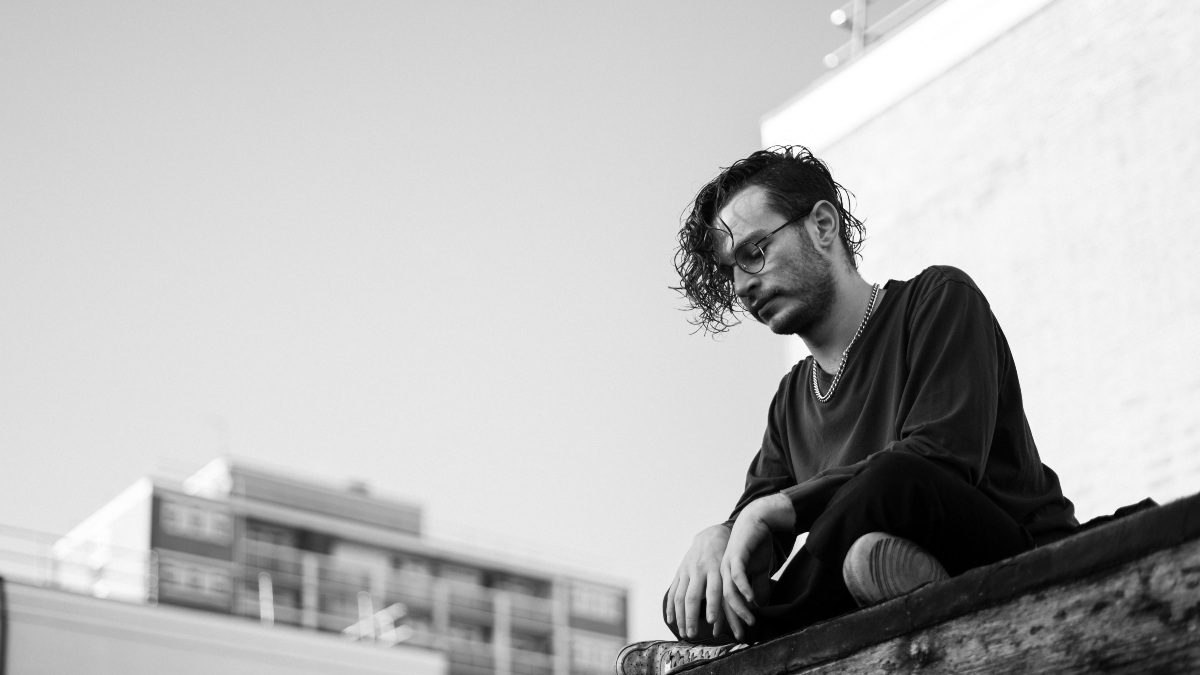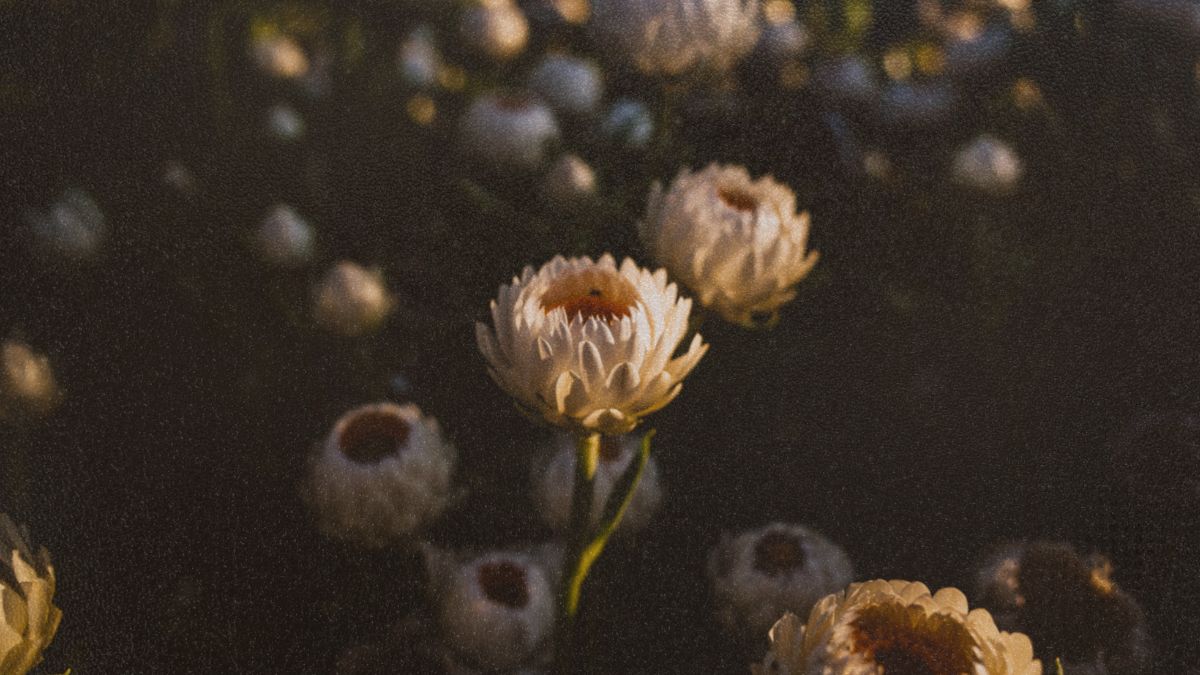Jung Latch is the alias of East London-based composer and sound designer Rupert Galea. Using an array of modular gear, vintage 8-bit samplers, world instruments and his own written algorithms for randomised generative melodies and rhythms, he makes his own distinctive style of avant-garde rave music, playing with intricate sonic collages and underpinning them with hard-hitting breakbeats.
Connect with Jung Latch on Soundcloud | Instagram
Channelling the freewheeling, frenetic energy and exploratory spirit of electronic artists like Batu, Throwing Snow and early Max Cooper, his debut EP Esoteric combines elements of breakbeat, glitch and electro across four memorable tracks.
Jung Latch – Esoteric is out now
Thanks for talking to us today. Esoteric is remarkably accomplished for your debut release. How long have you been making music?
Uhh, I’ve been playing instruments since I was about five, I started writing my own really basic pieces on saxophone and drums around age eleven and only started to really commit to composing and producing properly when I was sixteen. I met a guy in the sixth form that was as into it as I was and we started our own prog-metal outfit. He was the one doing all the sound engineering stuff originally but I got way more into it the more I learned from him and I started getting really into producing my own pure electronic material when I was at university. Even the style of the alternative breaks I make now is probably less than a year old. I’ve been genre-hopping for a long time before really settling on a sound.
You started going to raves as a youngster with your (cousin), is there an especially strong memory or experience you have from those formative years?
As sick as those early raves were, it was when I was at Uni in Nottingham that really opened my eyes to the pure grassroots element of dance music. I remember getting involved with a couple of organisers at really short notice where we just brought a beaten-up sound system to this abandoned subway tunnel on the outskirts of Sherwood and messaged about 100 people to come through. They obviously all brought a couple of guys with them each and we just partied until the fed showed up, at which point we all just picked up a piece of equipment each and legged it. It was so unpretentious and so DIY that all the club nights I went to after just felt polished and conceited.
Have you previously released under different aliases?
Back with my prog-metal project, we released a couple of singles under the name “Kolibri”, then, again, at university, I had a Neptunes-style production outfit going on with a few mates. We did a lot of beat-making for small-time rappers and MCs but I don’t think we ever really settled on a name, which was kinda fun in a way… it kept the project fluid and we were able to do whatever we wanted with it and even the lineup of the outfit was constantly on rotation.
Were there any artists, in particular, you were listening to or aiming to emulate when you produced the EP?
A lot of third-wave alt electronica, stuff like Joy Orbison, OPN, Vegyn, really influenced the more abstract sound design I used. At the same time, I was really trying to bring back a classic element of old-school UK breaks and Detroit techno into the mix. I watched Harry Belafonte’s Beat Street earlier last year and the instrumentals of all the early hip-hop they had in the soundtrack made a big imprint on this EP, especially with the drums. The uniform, mechanical rhythms you get with those old MPC kits is something I really love. I wanted to sprinkle the tracks with a bit of that neo-soul warmth I always loved about my mum’s old records, that Sade / Massive Attack vibe.
Talk us through some of the equipment you used when producing this?
For hardware, a lot of pretty outdated equipment haha. All the basslines were made on an old Moog Mother 32 and most of the drums came from an MPC60, cause I really wanted to inject that J-Dilla abrasive sound into it. My modular setup was a big part of the overall sound design, especially with the FX and background sounds that pad out the mix. I use Ross From Friends’ Thresho plugin a lot for just capturing ideas as they come and figuring out what to do with them later. That’s not to say I don’t use any software, the granular processing plugins I use are responsible for a big part of how the EP sounds, especially Portal, it just splits the incoming audio into tiny fragments to manipulate individually and it’s great for taking a relatively conventional sound and mangling it beyond recognition. Aside from that, I borrowed a mate’s analog compressor to run all the low-end parts through at the end stage, which beefs it up a bit overall.
For you, why is modular synthesis such an important part of your process? What do you feel this allows you to do that perhaps soft synths might not?
I think it’s cause I can work outside of the constraints of using black and white keys to write a tune. Theory’s always been a bit of a weak spot for me so I prefer to work with long generative melodies and carve out a segment that sounds particularly appealing. Don’t get me wrong I use things like Serum and Reaktor a lot to layer the sounds after they’ve been recorded but the linear process of pressing a note to hear a sound feels a little formulaic to do all my writing on it. With my modular I can do things like use an LFO to cycle between eight different inversions of an arpeggio at a really high speed and it becomes this weird evolving pad.
There’s a great balance between some quite tough, raw sounds and more soothing melodies – how much is this a reflection of your personality?
Yeah, probably the fact that I’m indecisive and constantly u-turning. All the sounds were recorded on different days in different contexts so the timbral qualities of the recordings kinda change according to my location, what time of day it is and definitely my headspace. It’s a bit like an audio journal in that sense. The really aggressive bassline on Sual, I remember exactly the shitty day I’d had when I recorded that in. I’m a bit of a mess in real life and that’s probably why the EP sounds, for better or worse, erratic.
You were diagnosed with autism at a young age – what challenges has that brought with it?
Mainly in getting my work out there really. Since the industry is such a who-you-know thing the combination of growing up in a very remote village in Hertfordshire combined with having shite social skills makes networking a much slower process than it could be. It’s taken a while to get to grips with socialising within the scene and finding opportunities to reach people with my music without coming across as cold and opportunistic like that guy from Nightcrawler.
Has music helped you work through these challenges?
It’s the inverse if anything. If I were less of a recluse I probably wouldn’t be as focused on both discovering and producing music. I used to have constant anxiety about being constantly on the outside of the tent at school, I was the awkward one that never found a clique to get on with, but looking back it definitely provided me with a lot of time to really think about what I wanted to make and how I wanted to go about it.
You’ve cited Kraftwerk, Tangerine Dream and Enigma as the music you were drawn to early on. Is there one album that has influenced your own music more than anything else?
Sasha’s 2002 album Airdrawndagger. The sheer range of sounds and textures on that record resonates with me a lot, and the seamless transitions between meditative atmospheres and all-out balls-to-the-wall beats have always been an underlying theme in my work in whatever genre. It’s a really solid album from him that’s developed a cult appreciation over the years and I’d love to make a full-length LP that takes that sentiment and shifts it into really bizarre territory.
What’s next for Jung Latch?
I’m in the studio right now making material for a follow up EP, I’m going for a more surreal, unstable sound that’s also more vocal-driven with this one. I’m also working with my mate on a live audio-visual performance using a bunch of music hardware alongside a program for creating generative visual art that responds to incoming audio in real-time. So I’ll be working through a live-looping set with my synths and samplers and he’ll be next to me manipulating the visuals to be projected outwards in a circle, kind of like a hi-tech Fantasia (the Disney performance not the festival). It’s aimed at sitting somewhere in the grey are between a concert and an installation so currently we’re looking for a space that fits what we’re going for.
Thank you.




